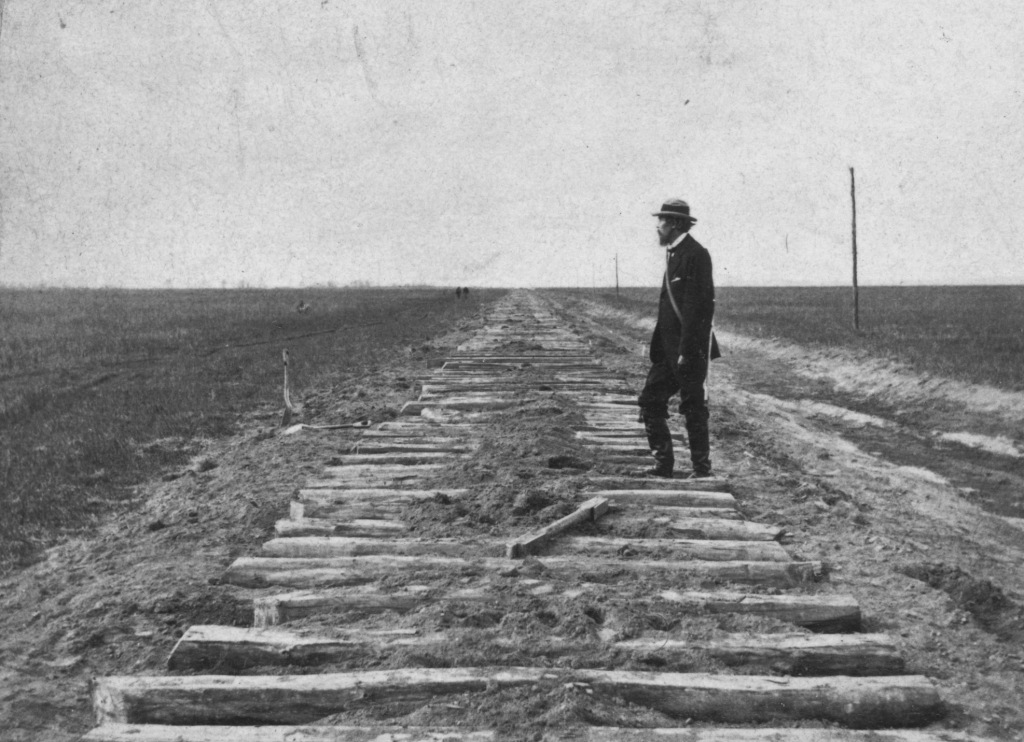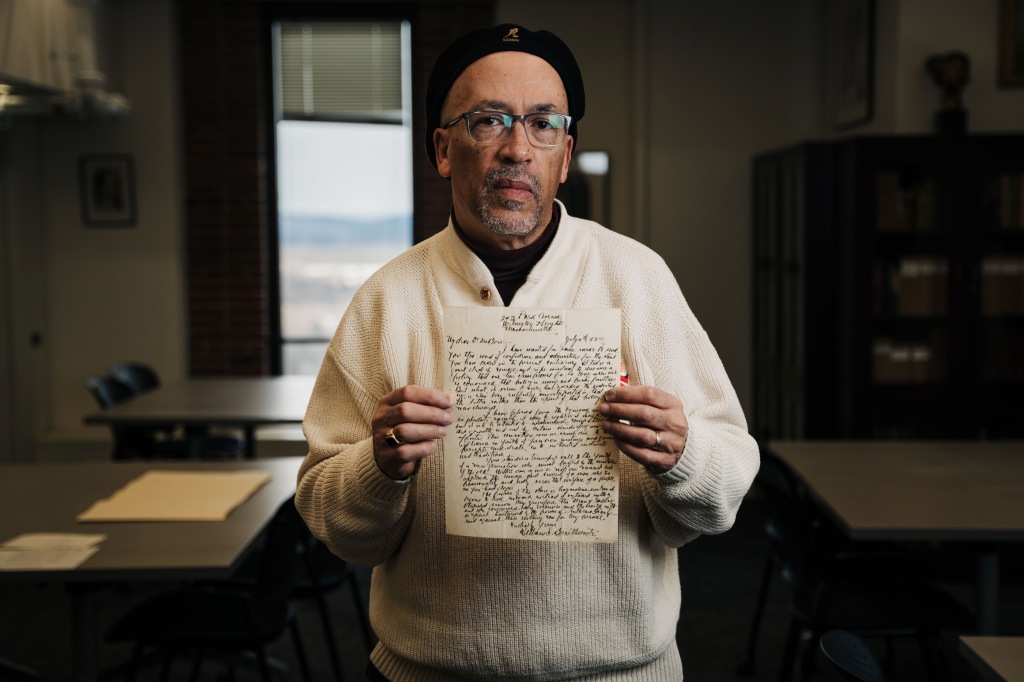Confronting Empire: 2022-23 Feinberg Series Explores Histories of U.S. Imperialism and Anti-Imperialist Resistance
By Christian G. Appy, Jess Johnson, and Diana Sierra Becerra
The 2022–23 Feinberg Series, Confronting Empire, brought together scholars, journalists, educators, writers, community organizers, and survivors of state violence to examine global histories of U.S. imperialism and anti-imperialist resistance. Engaging an international audience of thousands, the series comprised nine public events—including lectures, panels, and a poetry reading—as well as a four-part workshop series for K–12 educators and more than two dozen linked undergraduate courses.
Presented in collaboration with the Ellsberg Initiative for Peace and Democracy and co-sponsored by more than three dozen community and university partners, Confronting Empire traced the roots of U.S. imperialism from the conquest of North America through the creation of a formal and informal overseas empire in the late 19th century, ending in the present day.
THE FEINBERG SERIES
The history department’s signature event series, the Feinberg Family Distinguished Lecture Series is offered every other year, with each iteration focusing on a topic of great contemporary significance with deep historical roots. Oriented toward community and student audiences, this widely celebrated event series is made possible thanks to the generosity of Kenneth R. Feinberg ’67 and associates.

The series opened in September of 2022 with a keynote conversation between Nobel Peace Prize laureate Dr. Rigoberta Menchú Tum and journalist Vincent Bevins. With Democracy Now! host Amy Goodman as moderator, together they explored the devastating consequences of U.S.-backed state terror in Central America and Southeast Asia and the path that survivors have charted for healing historical trauma.
On the heels of the keynote, Barnard College professor and historian Manu Karuka presented “The Imperialist Roots of the U.S.A.,” which traced the evolution of U.S. imperialism from the conquest of North America to the creation of an overseas empire by the close of the 19th century. Drawing on the work of W. E. B. Du Bois, Karuka offered a definition of imperialism and made the case that it is central to understanding and overcoming the major crises of our moment, including climate change, poverty, and the looming threat of nuclear war.
The Asia-Pacific region has been a major site for the development and maintenance of U.S. empire. In November, scholars and journalists Moon-Ho Jung, Nerissa S. Balce, and Brian Hioe explored this history, including its racist roots, the revolutionary struggles it engendered, and the profound consequences for people in Asia, the Pacific, and the United States today. With moderator Sigrid Schmalzer, they urged us all to understand that despite the oft-repeated goal of promoting democracy, U.S. empire has consistently produced state repression and violence.
Later in the month, the Feinberg Series hosted the inaugural Ellsberg Lecture, an event that launched the Ellsberg Initiative for Peace and Democracy. The lecture, introduced by Pentagon Papers whistleblower Daniel Ellsberg, was given by Azmat Khan, a Pulitzer Prize-winning investigative reporter for the New York Times. Her talk, “The Human Toll of America’s Air Wars,” offered evidence that despite U.S. military and government claims that its air wars were precise, even surgical, drone attacks and bombing strikes in Afghanistan, Iraq, and Syria routinely caused significant civilian casualties.

Rounding out the fall semester, the “Vietnam Era Antiwar Movement” panel discussion analyzed the impact of the most vibrant, diverse, and sustained anti-war movement in U.S. history. Moderated by filmmaker Judith Ehrlich, this panel of scholar activists featured Pentagon Papers whistleblower Daniel Ellsberg, historians Nguyet Nguyen and Carolyn Eisenberg, and veteran and poet W. D. Ehrhart. Presenters gave special attention to the ways the anti-war movement inhibited some of President Richard Nixon’s plans to escalate the war even more.
From joining with Indigenous peoples to contest European settlement to protesting the annexation of foreign territories, African Americans have fostered a vibrant and complex Black radical tradition opposed to U.S. imperialism. In the first talk of the 2023 spring semester, “None of Us Is Free Unless All Are Free,” public intellectual Bill Fletcher Jr. sketched a long trajectory of Black anti-imperialism from the 16th century to the present and offered a critical historical analysis of this tradition, including its inherent contradictions. Organized by the W. E. B. Du Bois Department of Afro-American Studies, this event was the 2023 James Baldwin Lecture, a biennial lecture created by history department alumnus Allen J. Davis ’68.
On the eve of International Women’s Day, the series hosted “Feminists against Empire,” a panel of Latin American feminists exploring the relationship between patriarchy and U.S. imperialism. Focusing on the fatal impacts of U.S. sanctions, Cuban and Venezuelan journalists and community organizers Liz Oliva Fernández and Alejandra Laprea outlined how U.S. economic warfare greatly intensifies the reproductive labor of women and exacerbates existing inequalities in those societies. Alongside moderator Diana Sierra Becerra, they called for U.S. movements to link domestic and foreign policy and build cross-border solidarity.
Later in March, the series marked the 20th anniversary of the U.S. invasion of Iraq with “Resisting Imperial Memory,” an international panel exploring the Iraqi experience of the invasion and occupation. This group of U.S. and Iraqi scholars, veterans, journalists, and activists (Kali Rubaii, Dave Inder Comar, Salman Khairalla, Nazli Tarzi, and Ross Caputi) discussed not just the devastating human and environmental toll of the conflict but also grassroots efforts to seek restorative justice.

The capstone event, “The Poetry of War and Resistance,” featured four distinguished, award-winning poets—Carolyn Forché, Yusef Komunyakaa, Dunya Mikhail, and Ocean Vuong—who read their works and shared the moral, political, and literary challenges of writing about war and its human consequences. With moderator and poet Ru Freeman, the panelists discussed the complex relationship between art, citizenship, and political commitment.
Accompanying the lectures was a four-part yearlong workshop series for K–12 educators. Facilitated by high school teacher Brian Brown and historian Alison Russell, the workshops supported teachers in translating the themes of the lectures—aimed primarily at an adult community audience—into lesson plans for K–12 students. At the university level, the series was dynamically integrated into more than two dozen courses across our campus and the Five Colleges, including the series’ four official courses, which together enrolled hundreds of students.
The historical issues and evidence presented by this series could not be more timely and relevant as the United States continues to assert its global power through private and public institutions of every kind. The U.S. military alone maintains more than 750 bases on foreign soil, and the country spends as much each year on its military as the next nine most heavily armed countries combined. This year’s Feinberg Series challenged audiences to consider how these priorities came to be and to imagine better alternatives for the future.
We invite you to join us. Recordings of the Feinberg Series events are available on the series website: www.umass.edu/feinberg
Christian G. Appy is Professor of History and Director of the Ellsberg Initiative for Peace and Democracy at UMass Amherst. Jess Johnson is Director of Outreach and Community Engagement in the UMass Amherst History Department. Diana Sierra Becerra is Assistant Professor of History at UMass Amherst. Together, they were the co-chairs of the 2022-23 Feinberg Series. They thank the large team of students, staff and faculty who collaborated with them in planning and implementing the series, including Stefanie Austin, Richard T. Chu, Ross Caputi, Tom Kelleher, Toussaint Losier, María Portilla Moya, Maya González ’23MA, Traci Parker, Alison Russell, and Sigrid Schmalzer.